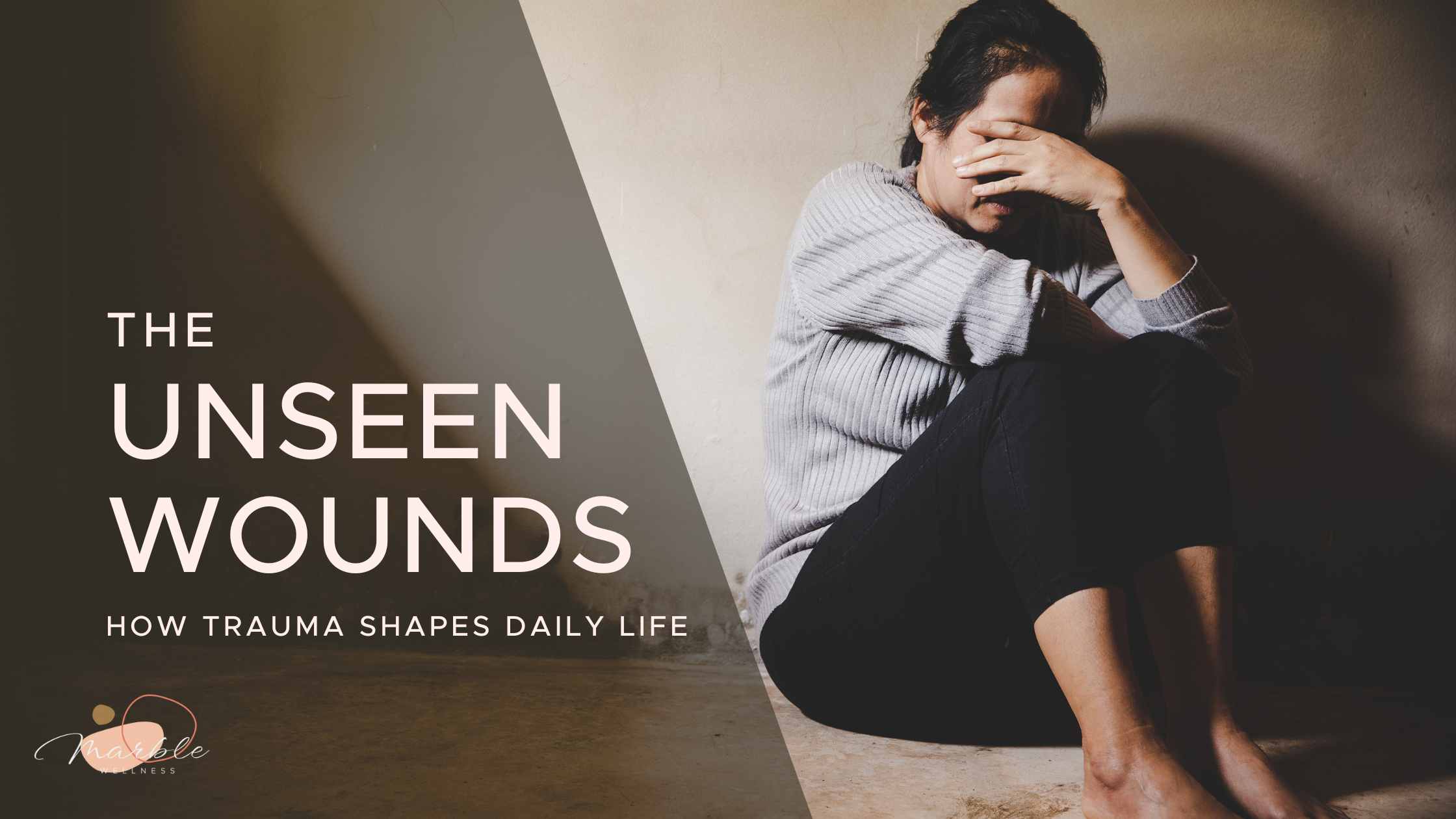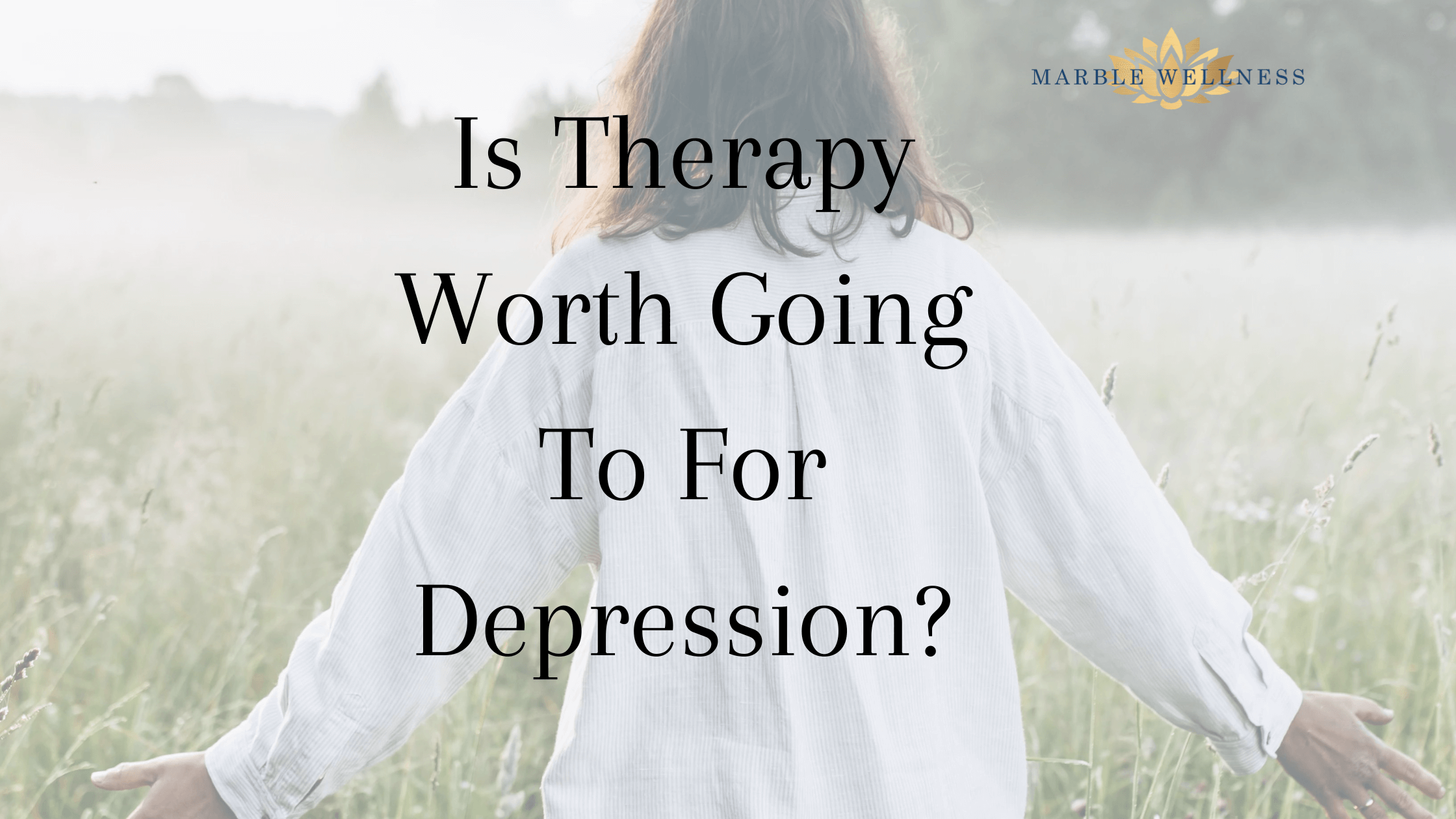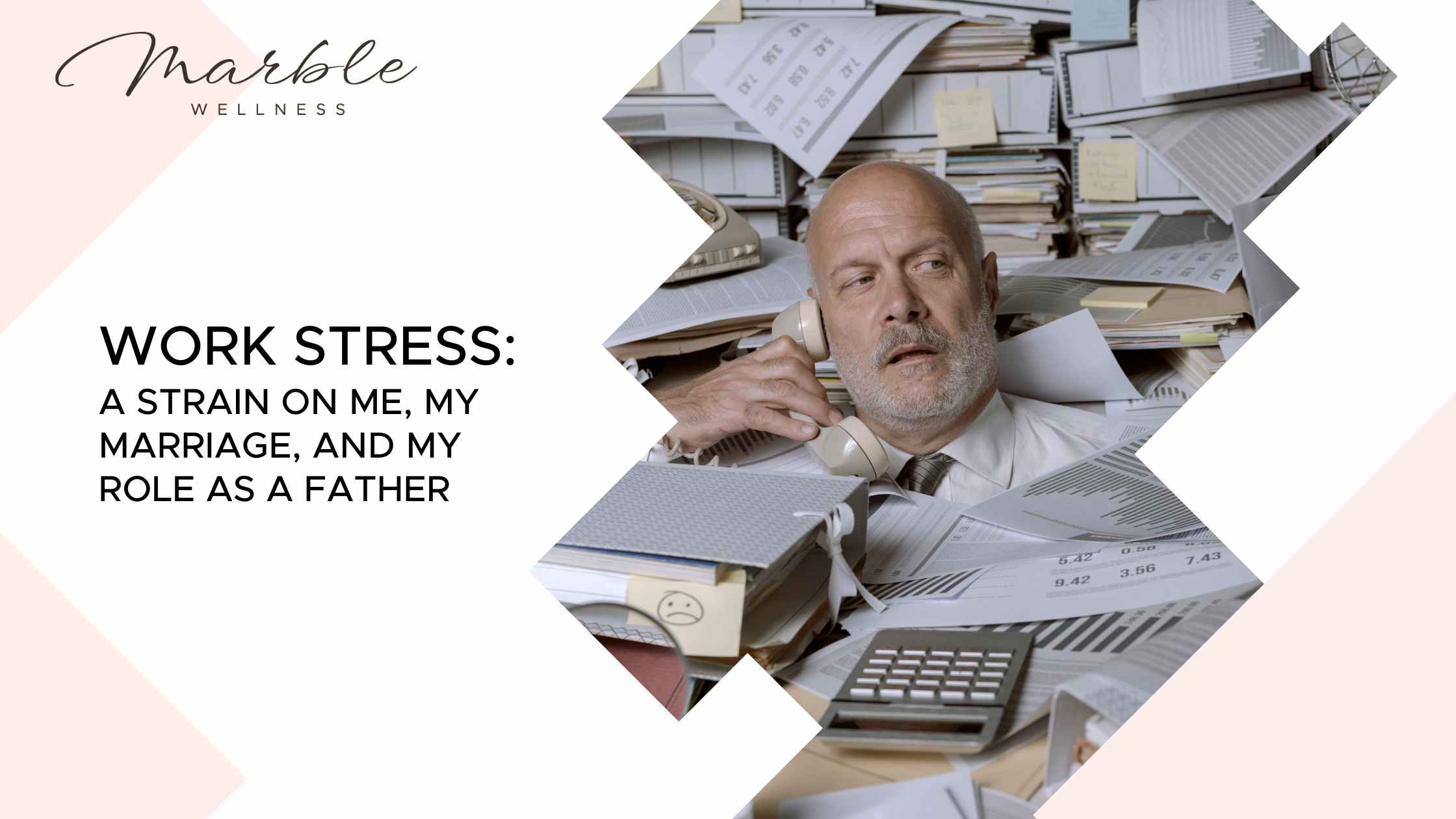Trauma has a way of leaving marks, even when they’re invisible to the outside world. You might not see a scar, but the pain is there, affecting the way someone feels, thinks, and navigates through their day. Trauma doesn’t just stay in the past—it shows up in the present, weaving its way into relationships, work, health, and the quiet moments in between.
If you’ve experienced trauma, you might feel like there’s a heavy shadow following you around. Maybe it’s the knot in your stomach when your phone buzzes, the hesitation to trust someone new, or the sleepless nights spent reliving something you wish you could forget. These aren’t signs of weakness—they’re signs of your body and mind trying to protect you from the trauma. The tricky part is that those protective mechanisms can sometimes make daily life feel harder.
How Trauma Influences Emotions and Behaviors
Trauma doesn’t just live in your memories—it settles into your emotions, shaping how you see the world and react to it. Sometimes it feels like the emotional volume is stuck on high, even over things that wouldn’t normally faze you. Or maybe it’s the opposite: you feel numb, like nothing really touches you anymore. Trauma has this way of rewiring your emotional system, turning even ordinary moments into something overwhelming or empty.
Think about it like this: your brain is trying to protect you. After experiencing something traumatic, your mind works overtime to make sure it doesn’t happen again. That might mean being hyper-alert, scanning for danger where there might not be any. Or it might mean shutting down completely because feeling anything just hurts too much. These reactions are survival tools—your brain’s way of saying, “I’ve got you.” But over time, they can feel like roadblocks, keeping you stuck instead of moving forward.
Of course, trauma also sneaks into behaviors, often in ways that don’t make sense until you step back and connect the dots.
- You might avoid certain places or situations without even realizing why—like driving past a certain street or hearing a song that triggers an uneasy feeling.
- Anger or irritability might surface quickly, even if you’re not sure where it’s coming from. It’s like your body is primed for a fight, even when there’s no battle to fight.
- You might struggle to focus or finish tasks, feeling like your mind is always wandering or weighed down.
- You might over-apologize, always fearing you’ve done something wrong. Or, on the flip side, you might pull away from people entirely, building walls to keep everyone out.
- Sleep and eating patterns might change, not because you want them to, but because your body and mind are out of sync.
Trauma can also lead to moments of second-guessing yourself. Maybe you feel overly sensitive, wondering if you’re “overreacting.” Or maybe you beat yourself up for not “getting over it” like you think you should. But here’s the thing: none of these behaviors are about weakness. They’re about survival. They’re your mind and body trying to protect you, even if the strategies they’re using don’t feel helpful anymore.
The good news? Trauma therapy can help untangle all of this. By understanding the emotional and behavioral patterns trauma creates, you can start to make sense of what feels so hard. Those behaviors that feel confusing or frustrating? They start to tell a story, one that you can rewrite with time, care, and the right tools.
How Trauma Affects Relationships
Trauma doesn’t just sit quietly in the corner of your mind—it spills into your relationships, often in ways you don’t notice at first. It shapes how you connect with people, how you trust (or don’t), and how you handle conflict or closeness. Whether it’s family, friends, or romantic partners, trauma can build walls where bridges should be or cause reactions that feel out of sync with the situation.
Family Relationships
Family relationships can feel like both a comfort and a challenge when trauma is in the picture. If your family was part of the trauma—whether directly or indirectly—it can make those connections especially tricky. Maybe you’re walking on eggshells around a family member, avoiding certain conversations, or feeling like you can’t be fully honest. Even in families that weren’t involved in the trauma, loved ones may struggle to understand what you’re going through.
This can lead to feelings of isolation, even in close families. You might pull back, not wanting to burden others, or lash out, frustrated that they don’t “get it.” Or maybe you’ve noticed patterns like repeating the dynamics of your childhood—perhaps being overly critical of yourself or others, or seeking approval in ways that leave you feeling empty.
Friendships
Friendships often shift after trauma. Maybe you feel like your friends can’t relate to what you’ve been through, and you start pulling away. Trauma can make small talk feel exhausting and deeper conversations feel too vulnerable. You might fear being judged or worry about being “too much” for the people around you.
On the flip side, trauma can also make you cling tighter to friendships, sometimes in ways that feel unbalanced. You may overextend yourself to keep a connection alive or struggle with resentment if you feel like your needs aren’t being met.
Romantic Relationships
Romantic relationships are fertile ground for trauma’s effects to show up, often in ways that feel deeply personal. Trust is a big one—trauma can make it hard to believe that someone won’t hurt you or leave, even if they’ve given no reason to think that. You might find yourself overly dependent on a partner for reassurance, or, conversely, pushing them away to protect yourself from being vulnerable.
Trauma can also affect intimacy. Emotional and physical closeness might feel triggering, even when you want connection. This can create tension, misunderstandings, or a sense that you’re not “good enough” in the relationship.
Shared Threads in All Relationships
Across all types of relationships, trauma can create patterns that feel frustrating or confusing:
- Overreacting to minor issues: Maybe a small disagreement feels like a full-blown threat, or you find yourself shutting down completely to avoid conflict.
- Difficulty expressing needs: You might fear being seen as “needy” or worry that asking for support will push people away.
- Feeling detached or numb: Even with people you care about, you might struggle to feel present or connected, like there’s a wall between you and the rest of the world.
- Cycles of guilt and shame: You might feel guilty for how trauma has impacted your relationships or ashamed for not “handling it better.”
Physical Symptoms of Trauma Linger
Trauma doesn’t just affect our emotions and thoughts—it takes a toll on the body as well. Even when you feel like you’ve moved past something emotionally, your body may still carry the weight of those experiences. You might notice physical symptoms that linger long after the trauma itself is over, making you feel like you’re stuck in a loop of discomfort.
Here are some physical symptoms of trauma that may stick around:
- Chronic tension: You might feel like your muscles are constantly tight, especially in your neck, shoulders, or jaw, as though your body is always on high alert.
- Fatigue: Trauma can make it feel exhausting to get through the day, even if you’re getting enough sleep. The body’s stress response can leave you drained, physically and emotionally.
- Sleep disturbances: Trauma often messes with your sleep. You might struggle with insomnia, vivid dreams, or even nightmares that bring you back to the traumatic experience.
- Headaches or migraines: Some people experience frequent headaches or migraines due to the ongoing stress and tension caused by trauma.
- Digestive issues: Trauma can affect your stomach and intestines, leading to symptoms like nausea, bloating, or even chronic stomachaches.
- Increased heart rate or shortness of breath: Your body can go into “fight or flight” mode without warning, making your heart race or leaving you feeling breathless, even in calm situations.
- Unexplained aches or pains: Sometimes, trauma gets “stuck” in the body, showing up as pain in random areas that don’t have a clear cause, like back pain or joint discomfort.
These lingering physical symptoms can be frustrating, and it’s easy to feel like they’ll never go away. But the body remembers trauma, and it takes time to process and release these physical sensations.
Why Healing from Trauma Feels Out of Reach (and Why It’s Not)
If you’re experiencing lingering symptoms, you might feel like healing is impossible. It’s common for people with trauma to think that they’ll never feel “normal” again or that their symptoms are something they just have to live with. There’s often a belief that no matter what therapy or treatment you try, nothing will truly bring relief.
Why does healing feel so out of reach?
- Overwhelming emotions: Trauma brings intense feelings of fear, anger, sadness, or guilt that can feel too big to confront. You might worry that diving into your past will make everything worse.
- Shame: Many people who have experienced trauma carry a sense of shame—about what happened, about their reactions, or about how they feel now. This can lead to believing that healing is only for others, not for you.
- Mismatched expectations: Healing doesn’t look like a linear journey. Some days feel better, while others feel like you’ve taken two steps back. This can be discouraging, but it’s a normal part of the healing process.
- Lack of support: If you don’t have the right tools or emotional support, it’s easy to feel like you’re going through it alone. It’s hard to heal when you don’t feel understood or safe to process what’s inside.
But here’s the important part: healing is possible. It’s not a matter of “if” but “when”—and that “when” is very much within your reach. It’s okay to feel like healing is far away or even out of reach sometimes. That’s a normal part of trauma’s grip. But through the right therapy, support, and healing practices, you can take the first steps toward recovery—and you’re already closer to healing than you might think.
A Path to Healing from Trauma
Healing from trauma is not a quick fix, and there’s no one-size-fits-all approach. But with the right guidance and tools, it’s absolutely possible to reclaim your life, your relationships, and your physical well-being. Therapy, including approaches like EMDR, can help you reconnect with your body, reframe your experiences, and release the hold trauma has on you.
Here’s what a path to healing might look like:
- Understanding your trauma: A key part of healing is understanding how trauma is affecting your mind and body. Therapy provides a safe space to unpack what’s happened, why it still affects you, and how it shows up in your thoughts, emotions, and behavior.
- Processing memories: In EMDR therapy, we use targeted techniques to help you process traumatic memories, which can reduce their emotional charge and help your mind and body process them more naturally.
- Rebuilding safety: You’ll work on creating a sense of safety for yourself—whether that’s emotionally, physically, or relationally. Re-establishing trust in yourself and others is a huge part of healing.
- Learning new coping skills: Trauma therapy helps you develop healthier coping mechanisms to replace old, unhelpful habits. This might include learning how to manage overwhelming emotions, building grounding techniques, or learning to set boundaries in relationships.
- Restoring connection: As trauma therapy helps you heal, you’ll begin to feel more connected—both to yourself and to others. Relationships can be rebuilt, and you can find a new sense of peace and joy in life.
The journey might take time, but with the right tools, support, and commitment, you’ll be able to heal—physically, emotionally, and relationally. The path is not linear, and there may be bumps along the way. But the important thing is that healing is possible, and you don’t have to do it alone.
A Unique Trauma Healing Journey
Healing from trauma is not a linear process—it’s unique to each person. For some, the path to feeling better might be slower or may take unexpected twists and turns. It’s okay to take your time and to feel like you’re not always making progress. That’s part of the journey.
If you find that healing feels too overwhelming to navigate on your own, know that you don’t have to do it alone. Seeking professional support can be a vital part of your recovery. A trauma therapist can guide you through this journey, helping you process memories, rebuild a sense of safety, and reconnect with yourself and others. Trauma therapy helps you develop new tools for coping with the emotions and physical symptoms of trauma, giving you a sense of empowerment and hope.
Consider Trauma Therapy in the St. Louis Area
No matter how long you’ve carried the weight of your experiences, there is hope for healing. The path may look different for everyone, but with the right support, you can regain control over your life and create a future where you can feel whole again. If you live in the St. Louis metro area and are ready to improve your mental health, our St. Louis trauma therapists are here to help.
Contact Us!
Learn About Our Group Offerings

Additional Counseling Services at Marble Wellness in St. Louis, MO
Our counseling services are designed to help set you on a path of living a more fulfilled, calm, and happy life. Our incredible team of STL-based therapists has a variety of training backgrounds and areas of expertise. We specialize in anxiety, depression, grief, chronic illness, therapy for men, couples, and maternal overwhelm. Our practice also helps new moms with various postpartum concerns, moms in the thick of parenting, and moms with teens. We can also chat from wherever you are in the state with online therapy in Missouri. No matter where you are in your mental health journey, we would love to support you.



